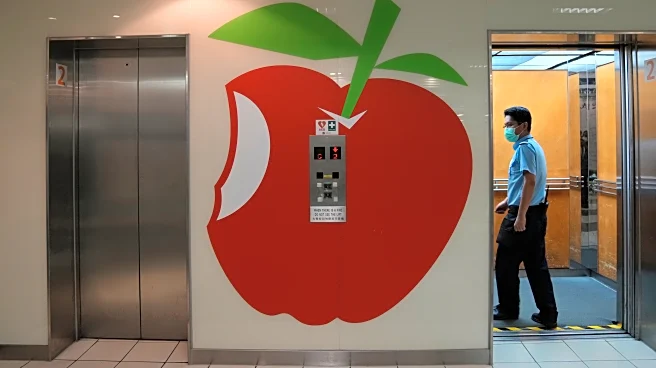What's Happening?
The Senate has approved a procedural measure to advance a bill aimed at reopening the government through January 30, while also passing three full-year appropriations bills, including the agriculture appropriations bill. Sixty senators, including eight
Democrats, voted in favor of the bill, meeting the minimum requirement for passage. The bill promises a vote on extending premium subsidies under the Affordable Care Act, although it does not include the extension itself. The Senate's approval sets the stage for a formal vote, after which the House must return to vote on the bill due to differences from the version it previously passed.
Why It's Important?
The advancement of the continuing resolution is crucial for ending the prolonged government shutdown, which has significant implications for federal operations and services. The inclusion of the agriculture appropriations bill is vital for funding the Agriculture Department and the Food and Drug Administration, impacting food and agricultural policy. The resolution's passage would restore government functions and provide financial stability to federal employees and contractors affected by the shutdown. The political dynamics surrounding the vote reflect ongoing negotiations and compromises necessary to address budgetary and policy priorities.
What's Next?
The Senate's formal vote on the bill is anticipated, followed by the House's return to Washington to vote on the revised version. The timing of these votes is uncertain, with the Senate scheduled to be out of session for Veterans Day. House Majority Leader Steve Scalise has indicated that votes related to government funding are expected in the House this week. The resolution's passage would pave the way for further negotiations on remaining appropriations bills and policy issues, including healthcare subsidies.
Beyond the Headlines
The shutdown's impact on federal employees and services highlights broader issues of governance and fiscal responsibility. The political maneuvering required to secure votes underscores the complexities of legislative processes and the challenges of bipartisan cooperation in addressing national priorities.
















